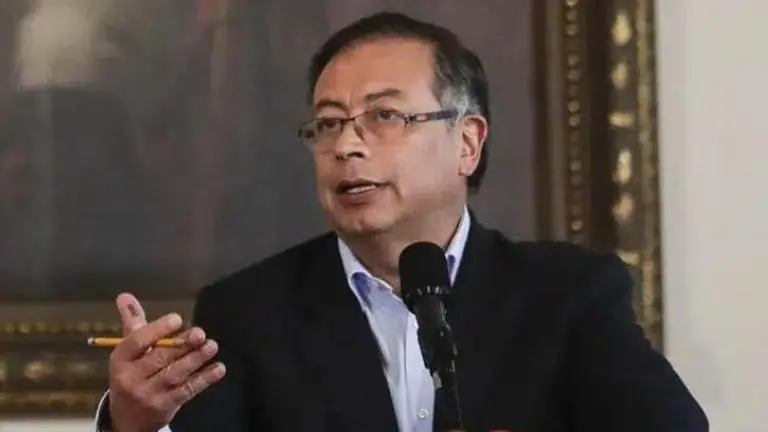Updated 25 April 2023 at 19:17 IST
Colombia hosts conference on Venezuela's political crisis; 'talks are a priority'
The conference is hosted by Colombian President Gustavo Petro, who has called for sanctions on Venezuela’s government to be lifted, but also for policies that ensure “more democracy” in Venezuela.
- World News
- 4 min read

Diplomats from 20 countries were gathering Tuesday in Colombia to discuss the political crisis in Venezuela, where Nicolas Maduro’s socialist administration has strengthened its autocratic rule despite international efforts to expand political freedoms in the South American nation. The conference is hosted by Colombian President Gustavo Petro, who has called for sanctions on Venezuela’s government to be lifted, but also for policies that ensure “more democracy” in Venezuela.
Delegates from the United States, the European Union, Brazil and the United Kingdom were slated to attend the one-day event, which also will look at ways to boost negotiations between the Maduro administration and a coalition of opposition parties known as the Democratic Unitary Platform. Those talks began in Mexico in 2021 but stalled at the end of last year. While members of the Unitary Platform are backing the Colombia meeting, some factions of Venezuela's opposition have questioned whether Colombia can be an effective mediator.
On Monday, Juan Guaidó, the former leader of Venezuela's National Assembly, travelled to Bogota intending to hold meetings with international delegates on the conference sidelines. But after he announced he was in the country, Colombia officials said he had entered illegally and asked him to board a flight to Miami. Guaidó has been barred from leaving Venezuela since 2019.
In the Mexico talks, opposition parties are seeking changes in the electoral system that will ensure a level playing field in next year’s presidential election, while Maduro’s government wants sanctions on Venezuela’s state-run oil company to be lifted, and has demanded that the United Kingdom and the U.S. unfreeze its assets in those countries.
Advertisement
While the negotiations have advanced slowly, many countries now see Mexico talks as the best path to overcome the political crisis in Venezuela, where opposition leaders have been forced into exile, while those who remain in the country claim that Maduro is an illegitimate president.
“This summit can be an incredible chance to ensure ongoing talks are a priority of the international community” said Geoff Ramsey, a senior fellow on Venezuela, at the Atlantic Council, a Washington think tank. “It’s a way for the participants to ensure that both parties have incentives in the (Mexico) negotiations.”
Maduro was re-elected in 2018, after judges banned his main opponents from competing. But most opposition parties refused to recognize the election results. Instead they challenged Maduro's rule by creating an interim government led by Guaidó, who was backed by the United States and dozens of nations who stopped recognizing Maduro as Venezuela's legitimate leader.
Advertisement
The U.S. government also imposed heavy sanctions on Maduro's government that cut its access to U.S. banks and crippled the nation’s oil exports, hoping that would spark regime change. But Maduro’s government dug in and resisted the sanctions with support from Russia, Turkey and Iran.
Guaidó's claim to Venezuela's presidency fizzled out over the past two years as his interim government failed to exert control over any institutions. Opposition parties in Venezuela dissolved it late last year and replaced it with a committee that includes leaders from the nation's main three parties.
As the stalemate in Venezuela continues, many countries have realized that using sanctions to bring about regime change has failed, said Ronal Rodriguez, a Venezuela expert at Bogota’s Rosario University. That includes the United States, which last year loosened some sanctions on Venezuela’s national oil company after the Maduro administration and the opposition made an agreement on humanitarian aid.
“We are moving away from the failed policy of the Trump administration that sought to achieve regime change through sanctions,” said Juan Gonzalez, the National Security Council’s senior director for Western Hemisphere affairs, in an interview with Colombian network NTN. Gonzalez added that the U.S. is willing to ease more sanctions if concrete steps toward free and fair elections are taken in the Venezuela talks.
Published By : Associated Press Television News
Published On: 25 April 2023 at 19:17 IST
